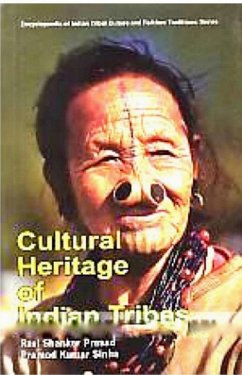Adivasi traditions and practices pervade all aspects of Indian culture and civilization, yet this awareness is often lacking in popular consciousness, and the extent and import of Adivasi contributions to Indian philosophy, language and custom have often gone unrecognized, or been underrated by historians and social scientists. Although popular myths about Buddhism have obscured the original source and inspiration for it's humanist doctrine, it is to India's ancient tribal (or Adivasi) societies that Gautam Buddha looked for a model for the kind of society he wished to advocate. Repulsed by how greed for private property was instrumental in causing poverty, social exploitation and unending warfare-he saw hope for human society in the tribal republics that had not yet come under the sway of authoritarian rule and caste discrimination. The early Buddhist Sanghas were modelled on the tribal pattern of social interaction that stressed gender equality, and respect for all members. Members of the Sanghas sought to emulate their egalitarian outlook and democratic functioning. This book will prove beneficial to the students, teachers and researchers in the field of this subject.
Dieser Download kann aus rechtlichen Gründen nur mit Rechnungsadresse in A, B, BG, CY, CZ, D, DK, EW, E, FIN, F, GR, HR, H, IRL, I, LT, L, LR, M, NL, PL, P, R, S, SLO, SK ausgeliefert werden.


